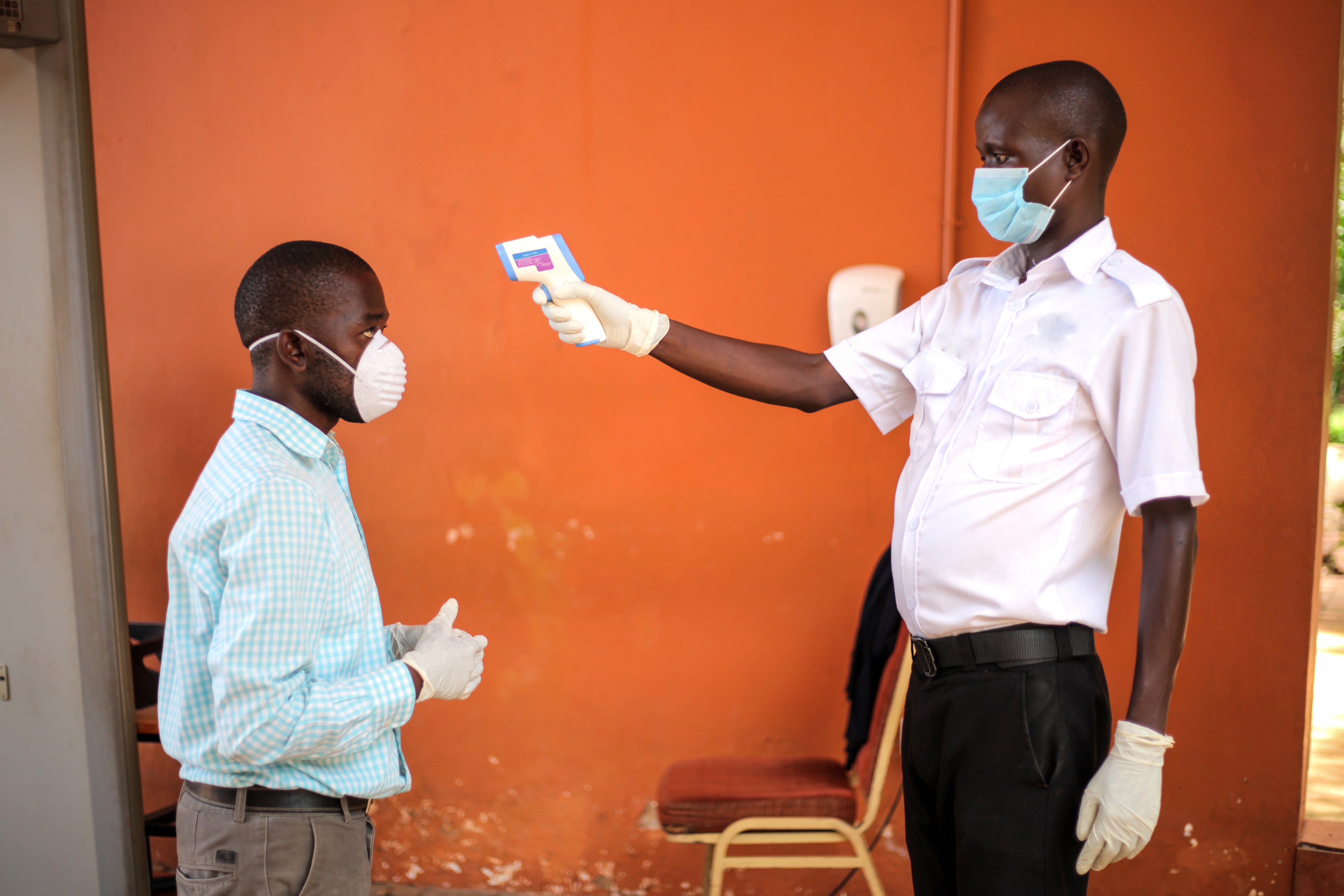From Ebola to COVID-19: West Africa must learn from the past and protect vulnerable people
- By Dorian Job
 0 Comment(s)
0 Comment(s) Print
Print E-mail China.org.cn, April 3, 2020
E-mail China.org.cn, April 3, 2020

With the rapid spread of the new coronavirus in recent weeks, the issue of preparedness in African countries has been in the headlines of the international press.
But one should wonder, honestly, which country was really prepared? Let's look at the situation in Europe today, especially in countries like Italy, France and Spain – which one of them was ready to face such a time bomb?
One also wonders whether the Ebola epidemic that affected West Africa between 2014 and 2016 has helped countries in the region to be better prepared.
This at least allowed for the development of surveillance and coordination reflexes and mechanisms. It's now just a matter of time to see how effective these efforts were.
In the meantime, we should already be preparing for the next phase when the chains of contamination are no longer controlled and we have many more cases to deal with.
The impact of control measures
Most countries have already taken measures to stop the spread of the virus, such as closing aerial borders, banning gatherings and closing schools, without going as far as total confinement.
If these measures make it possible to slow the spread, they will, however, affect the economies of countries and populations that often live on a day-to-day basis.
They will also impact vulnerable people in countries already dealing with humanitarian crises.
In Burkina Faso, for instance, it will be very difficult for organizations to ramp up the humanitarian response, as aid is already required in response to insecurity and population displacements.
None of us is in a position today to bring in new teams, and the medical supply system will be disrupted for weeks or even months.
Yet, it is imperative to strengthen not only the response to the humanitarian crisis but also hygiene and infection prevention measures to quell the spread of the virus in countries where access to water is largely insufficient.
Striking a balance
Each country will certainly have to adopt these measures soon in order to strike a balance between the necessary slowdown in transmission and the economic and social impacts that control measures are likely to have.
Nevertheless, certain constants must remain in all nations.
First of all, what will make the difference in slowing down the pandemic is a change in individual attitudes: the respect for the 6-foot physical distance we are told about and the application of basic individual hygiene measures.
Another key element in dealing with the pandemic will be our ability to identify, monitor and care for those most at risk – particularly in our communities.
COVID-19 is a respiratory disease with mild or moderate symptoms for the vast majority of people who catch it, but it causes quite serious complications among those at risk, especially the elderly and people with other medical conditions.
But we still know very little about its transmission in tropical areas or the consequences of co-infection with other chronic diseases, such as diabetes or hypertension, or with more seasonal diseases like malaria or malnutrition.
Other health concerns cannot be neglected
Finding an alternative to screening is also key, as testing and diagnostic capacities are not sufficient at the moment.
We will have to set up detection mechanisms based on symptoms and develop epidemiological monitoring and referral systems for the most critical cases as close to communities as possible.
Nevertheless, the concentration of attention and energy on COVID-19 over the next few weeks may lead us to forget other health concerns or neglect a large part of the population.
For example, malaria and measles – illnesses that have recently caused epidemic-scale outbreaks in Burkina Faso and Niger – remain high mortality diseases in these countries, and it's necessary to carry out preventive activities or vaccination campaigns. We face the risk of not being able to deploy sufficient resources to combat these diseases.
Learning from the past
We have to draw lessons from past epidemics, including the region's experience with Ebola.
Most importantly, we must ensure the safety of health workers and maintain confidence in the medical response and the organizations involved in implementation – this is essential in avoiding panic and ensuring the dissemination of good information, as well as avoiding the neglect of other patients.
At the same time, one must be also careful to not simply reproduce all the elements of an Ebola response, putting in place, for example, Ebola-type protective measures, such as coveralls for a virus that is not contagious through the skin.
Previous SARS (severe acute respiratory syndrome) experiences also evidenced that well-ventilated structures with natural light offer much better infection control conditions than sophisticated structures with a closed air circuit.
Take stock and innovate
In short, we'll have to take stock of the past and innovate.
I would not be surprised if new solutions for responding to this pandemic come from the African continent.
African countries have decidedly more experience in managing health emergencies, and public health reflexes are more developed there than in Europe.
We are moving quickly toward simplifying medical protocols and standards, which could allow for a faster response in a situation like this.
Dr. Dorian Job, MSF West Africa Programme Manager in Dakar, Senegal.
Opinion articles reflect the views of their authors, not necessarily those of China.org.cn.
If you would like to contribute, please contact us at opinion@china.org.cn.






Go to Forum >>0 Comment(s)